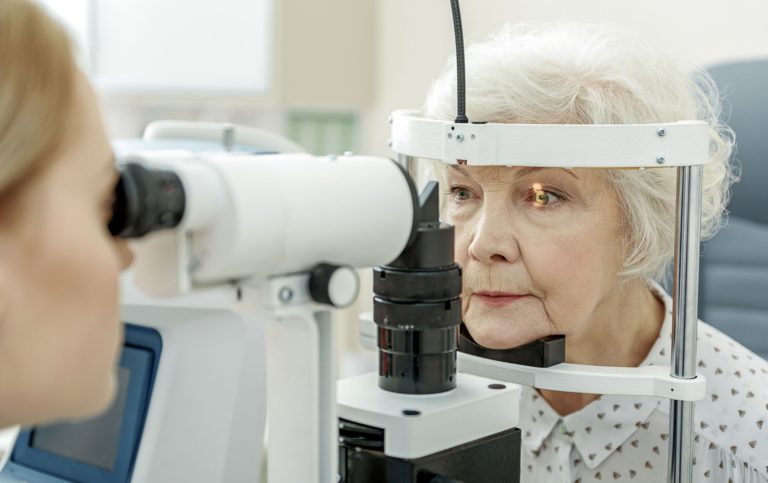Your Eyes and Diabetes – What You Should Be Aware Of
Diabetes, what does that have to do with my eyes?
High blood sugar left unchecked can result in severe damage to your eyes. As a matter of fact, diabetes is one of the leading causes of blindness for adults in Canada and the rest of the developed world. Because it is a painless disease, patients need to see their eye doctor for regular check-ups to ensure unnecessary damage doesn’t occur.
How does high blood sugar affect my eyes?
High blood sugar can affect your eyes in several ways. All people with diabetes, either Type 1 or Type 2, are at risk. People with diabetes are more prone to experience all of the following:
- Cataracts developing faster and at a younger age
- Refractive error changes related to changing blood sugar levels such as a Myopic Shift
- Glaucoma, which causes permanent damage when left untreated, is twice as likely to affect people with diabetes
- Swelling of the central retina (macula), known as Macular Edema, is due to fluid releasing between the layers of the retina
- Retinopathy (damage to blood vessels) causing bleeding in the back of the eye and can lead to blindness if left untreated
- Nerves responsible for producing the tears that hydrate the eye being damaged leading to Dry Eye Disease
What symptoms should I watch for?
If you have high blood sugar and any of the following visual symptoms, please see an optometrist or ophthalmologist immediately
- Blurry vision
- Double vision
- Faded color
- Dark or floating spots
- Flashes of light
Do not buy glasses without having a proper, full eye examination. A prescription may temporarily fix one of these symptoms while the underlying problem becomes more serious.
What happens during a diabetic eye exam?
Unless it is advised otherwise by your doctor, you need to have a comprehensive eye exam every 6-12 months that includes the following:
- Visual acuity check
- Medicated drops instilled into the eye, dilating your pupils to check the lens and retina
- Ocular Coherence Tomography (OCT) to check the retina and the optic nerve
- Visual field test to check peripheral vision and retinal sensitivity
What are the treatment options?
Your ophthalmologist or optometrist will treat the various eye manifestations of diabetes with different treatments. For example, glaucoma is commonly treated using eye drops or a laser. Diabetic retinopathy can be treated with laser therapy (photocoagulation), or injections of special medication into the eye. Cataracts can be treated with minor surgery.
With regular eye exams, you can catch diabetic damage early and receive effective treatments to keep eye issues caused by diabetes under control. Severe damage is more difficult to treat. If you already experience significant damage caused by diabetes, talk to your eye doctor about options to best preserve your vision.
Are the eye exams covered by MSP?
Medically required eye examinations are covered by MSP including if you are diabetic.
You can get your complete diabetic eye exam at Fraser Valley Cataract and Laser. Book your appointment now by calling our Surrey location at (604) 372-3937 or our Abbotsford location at (604) 853-5575.







